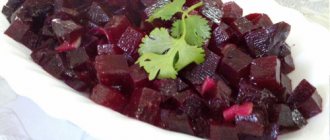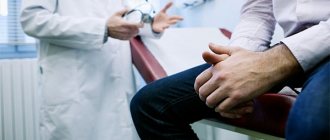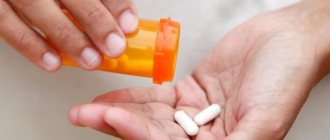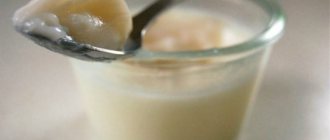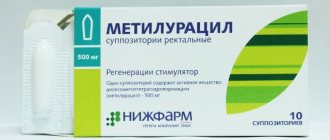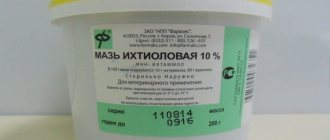Features of defecation with hemorrhoids
Some features of defecation at the time of illness:
- it is forbidden to endure the urge to defecate;
- you cannot push, this threatens the flow of blood to the intestines, which, in turn, is fraught with ruptures and bleeding;
- It is advisable to use soft types of toilet paper, and it is better to completely replace the paper by washing;
- It is forbidden to frequently use strong medications against constipation.
These rules are recommendations not only for patients with hemorrhoids, but for all people.
Briefly about hemorrhoids
Hemorrhoids are a disease of the anorectal zone, in which pathological damage to the venous network of the rectum occurs with the formation of hemorrhoids.
As the disease progresses, hemorrhoidal cones can become inflamed, bleed, fall out, or become pinched, which causes a lot of suffering to the patient.
Reference. Without the necessary treatment, the disease can progress, leading to the development of serious complications (anemia, inflammation, anal sphincter insufficiency).
The causes of pathology are varied. The most common provoking factors include:
- hereditary predisposition;
- physical inactivity;
- overweight;
- pregnancy and childbirth;
- stress, rectal ailments;
- excessive physical activity;
- constant constipation.
The disease has characteristic symptoms. Alarming signs of the development of the disease are pain, itching, burning in the anus, mucous and bloody discharge, constipation, the appearance of lumps in the anus, and a painful process of defecation.
If such signs occur, you should consult a specialist, since timely treatment increases the chances of successful treatment and prevention of consequences.
Therapy is carried out using various techniques. Both conservative (medicines, exercises, diet) and surgical treatment are used.
Reference. You can learn more about hemorrhoids, its symptoms, types and methods of treatment from this article.
Rules for bowel movement for hemorrhoids
With hemorrhoids, the patient constantly experiences pain, which increases significantly during bowel movements. To slightly reduce its intensity and speed up the treatment process, you should learn how to go to the toilet correctly. Following the recommendations is already half the success, as well as an opportunity to help your body recover faster.
Absolutely all people are recommended to follow the rules of defecation to prevent the occurrence of hemorrhoids. Basic rules on how to go to the toilet with hemorrhoids:
- At the first urge, you should immediately go to the toilet; patience significantly aggravates the disease.
- The back should be straight, the stomach should be relaxed.
- The knees should be higher than the hips, the elbows can be rested on the knees, and the head can be supported with the palms.
- Defecation should be quick, not long.
In addition to the above rules created by world proctologists, it is worth following the following recommendations:
- food must include cereals, oils, and dairy products. You need to drink about 1.5-2 liters of water per day;
- based on your body’s biological clock, get used to defecation at one time, for example, in the morning or evening;
- Underwear must be changed every day;
- wash after defecation with slightly warm water;
- For frequent constipation and problems with bowel movements, use special medications.
Following all these recommendations will help turn the process of defecation with hemorrhoids into a less scary and painful procedure.
Medicinal solution to the problem
If the cause of pain during bowel movements is constipation, hard stool and stool irregularity, then medication is required. Properly selected medications will help normalize the digestion process and facilitate bowel movements.
Medicines can be for internal use - tablets or drops, as well as for local use in the anorectal area - ointments, gels, enemas and suppositories.
Often, to relieve constipation and pain due to hemorrhoids, the doctor prescribes the following medications:
- rectal suppositories, for example, Glycerin, Bisacodyl, propolis suppositories;
- Microlax microenema or Norgolax gel for insertion into the anus and lubricating the walls;
- laxatives - Duphalac, Regulax, Slabilen, Mucofalk.
As an alternative, doctors recommend using sea buckthorn or castor oil to lubricate the anus. Vegetable oils not only facilitate the passage of stool, but also heal tissue or cracks, if any.
It is important to take and use only those medications prescribed by your doctor and not to self-medicate. Before starting to use any medication, you must read the instructions and follow precautions.
Visiting the toilet by pregnant women
Hemorrhoids after using the toilet are a common occurrence in pregnant women, especially in the second trimester.
This is due to a strong enlargement of the uterus, which, in turn, puts pressure on the rectum and causes blood stagnation. In pregnant women, like in other patients, there are four stages of hemorrhoids. The last stage is very dangerous due to the appearance of heavy bleeding.
When visiting the toilet with hemorrhoids, pregnant women may experience such symptoms.
- Pain during bowel movements, minor bleeding, discomfort.
- Itching after defecation, discharge from the anus, pain radiating to the sacrum or lumbar region.
- Prolapse of intestinal nodes, which can only be set manually.
- Prolapsed nodes that cannot be set, profuse bleeding.
The last two points are symptoms of the last stages of hemorrhoids during bowel movements. Treatment of the disease is mandatory; it should not be delayed, as the disease progresses easily.
Causes of pain
If every trip to the toilet is accompanied by pain, you should immediately contact a specialist to find out the cause of this problem. There are several factors that cause discomfort when trying to go big:
- Sitting on the toilet for a long time. If you spend more than 15 minutes on the toilet, inflammation of the hemorrhoids may increase. At this time, blood actively rushes to the veins - they swell and block the anal passage.
- Excessive zeal during pushing during bowel movements. Quite often, people have problems with their intestines precisely because they strain too hard on the toilet, and in case of hemorrhoids this is completely contraindicated.
- Hard feces Very often, due to poor nutrition and limited fluid intake, stool becomes quite hard. In this case, when passing through the intestines, they can damage it and cause pain. It is normal when the stool is soft enough and its passage does not cause discomfort or difficulty.
- Hygiene. If you violate the rules of caring for the anus, it can become inflamed, which will lead to pain even if the feces are normal. Therefore, it is very important to wash yourself after each bowel movement, but do not overdo it with soap. It can dry out the mucous membrane, and as a result, cracks will appear.
- Untimely emptying. Sometimes a person suppresses the urge to go to the toilet due to fear of pain or for other reasons. As a result, stool becomes harder and constipation occurs, which can cause more serious problems with the body.
How to go to the toilet after surgery?
After undergoing surgery to remove damaged tissue from part of the intestine, the patient may not immediately return to normal rhythm. This is due to the fact that sutures and scars remain on the intestine. If defecation is incorrect during the postoperative period, tissue rupture in this area and bleeding are possible. Therefore, the patient is given strict recommendations after surgery.
- A special diet high in fiber. Food should be light and not contain foods that cause increased gas formation. Also, on the first day after surgery, the patient is prohibited from eating.
- The next stage is to eat frequently, but in small portions. About 5-6 times a day is considered optimal.
- Since frequent constipation is possible after surgery, you should combat it by taking laxatives or suppositories.
The patient is also prescribed painkillers and medications that relieve spasms of the anal sphincter. Prescribed means for the fastest healing of sutures.
Benefits of cryotherapy and features
It is more effective and safer to treat hemorrhoids under the supervision of a physician in a medical facility. By incorrectly using ice suppositories for hemorrhoids, you risk aggravating the situation, which will entail expensive treatment with surgery.
On pharmacy shelves you will find the Crinus remedy for hemorrhoids in the form of a small plastic tube with a special liquid. The main advantage of using the tube material and liquid is not water, but a solution of chemical elements that help in the healing and restoration of the body. The product does not have to be applied directly to the affected area, risking catching a cold.
Therapy is used for chronic hemorrhoids after surgery. The solution for the Crinus device is placed in the freezer for two to three hours until completely frozen. During the procedure, to treat the external form of the disease, the widened part of the tube is placed between the buttocks; to treat the internal form, the narrow part of the device is inserted into the rectum. These actions are carried out for a quarter of an hour three times a day. After a week of the course, hemorrhoids heal without leaving scars. The recommended course of treatment is three to four weeks.
To avoid adding additional problems to hemorrhoids, carefully read the list of contraindications to the procedure:
- Inflammation of the uterine appendages, cystitis.
- Prostatitis.
- ARVI, viral infections, fear of triggering acute respiratory infections during pregnancy.
- Oncology.
- Skin diseases.
- CNS lesions, epilepsy.
- The size of the hemorrhoids is too large, requiring the help of a surgeon.
Share the article on social media. networks:
How to improve bowel movements with hemorrhoids?
In addition to diet and correct posture during bowel movements, bowel movements with hemorrhoids can be improved with medication or with the help of folk remedies. Medicines are also prescribed if hemorrhoids hurt.
With the help of medications
Improving bowel movements with the help of medications is aimed at relieving pain and combating constipation. Moreover, it has been noted that suppositories, ointments and gels help with hemorrhoids faster than tablets or capsules.
The most effective drugs for pain relief are presented below.
- Anal suppositories based on belladonna extract. Excellent for relieving pain and eliminating sphincter spasms.
- Procto-Glivenol. Relieves pain and has an anti-inflammatory effect.
- Relief candles. They fight pain, heal intestinal cracks, and cope with inflammation.
- Anestezol. Relieves pain, inflammation, heals microtraumas.
The most popular drugs to combat constipation and hemorrhoids.
- Castor oil.
- Glycerin based suppositories.
- Duphalac.
- Enema with castor oil.
Any use of medications for this disease is possible only after consultation with a specialist.
You can find out how laxatives for hemorrhoids help optimize the bowel movement process by reading our expert’s article.
Folk remedies
Treatment and prevention of hemorrhoids with folk remedies is carried out even during pregnancy. But it is advisable to coordinate the use of this type of therapy with a doctor, so as not to complicate the course of the disease. Recipes for folk decoctions and tinctures against hemorrhoids:
- Taking herbal baths. To do this, you will need to prepare a herbal decoction of nettle, chamomile, and plantain. All herbs need to be mixed and pour 2 liters of boiling water. Leave for at least 2 hours, then strain and dilute with warm water to obtain 5 liters of liquid. It is necessary to take such a bath for 7-10 minutes. The course lasts 2 weeks.
- Compress. To prepare the compress you need potatoes, about 10-12 pieces. Each potato needs to be washed and grated on a fine grater. It is worth rubbing together with the skin. Lay cellophane on a chair or bed, fold the twelfth part of the grated pulp into a cloth and place it on the cellophane. You need to sit on top of the cloth so that the hemorrhoids are in contact with the potatoes. Next, you should cover yourself to create a warm effect. It is necessary to sit for 10-15 minutes over each compress. A total of 12 procedures are performed.
These methods exist for the treatment and prevention of hemorrhoids, they are allowed for use by pregnant women. But if the uterus has increased tone, you should abandon this type of therapy and seek specialized help.
Folk remedies
Altai folk remedy for treating pneumonia
A very effective remedy for treating pulmonary diseases is used by Altai folk healers. Decoctions of motherwort and chicory root are used to treat bronchitis and as supportive therapy for pneumonia.
Belarusian folk recipe for treating pancreatitis with potatoes
A treatment recipe that was told to me by a healer living in a very small Belarusian village. Moreover, this recipe is still used, since its effectiveness can be compared even
Back pain can be cured by a dog hair belt
I want to start by saying that I am a doctor. And not a nurse or orderly, but a certified rheumatologist. And before, I didn’t believe in traditional medicine at all. Our medical education system completely excludes folk remedies. From the first year, students are drilled into
Bronchial asthma, exercises for the treatment of asthma
Physical exercises are used during the inter-attack period of asthma to improve well-being and increase performance, strengthen the respiratory muscles and improve ventilation of the lungs
What is the best time to eat?
A cold water bath is the best remedy for heatstroke.
Dandelion jam for liver cirrhosis
Pneumonia, traditional recipes for the treatment of pneumonia
